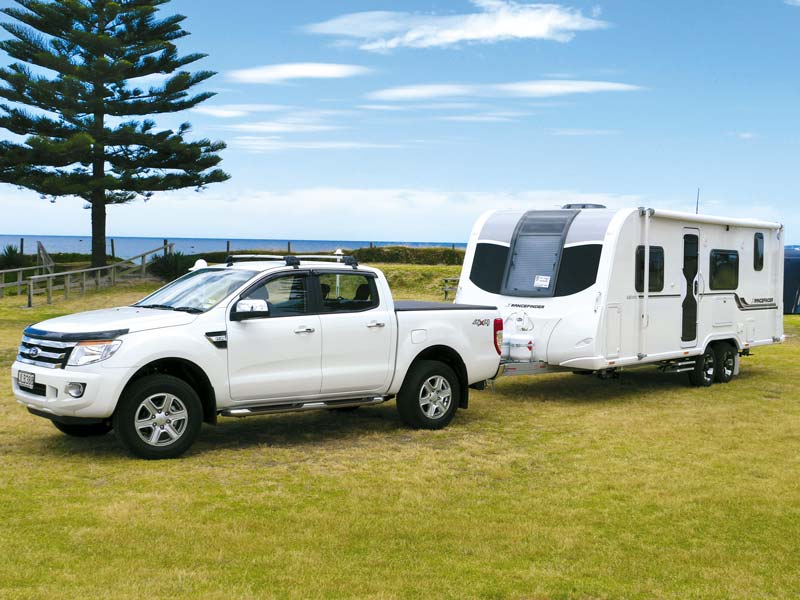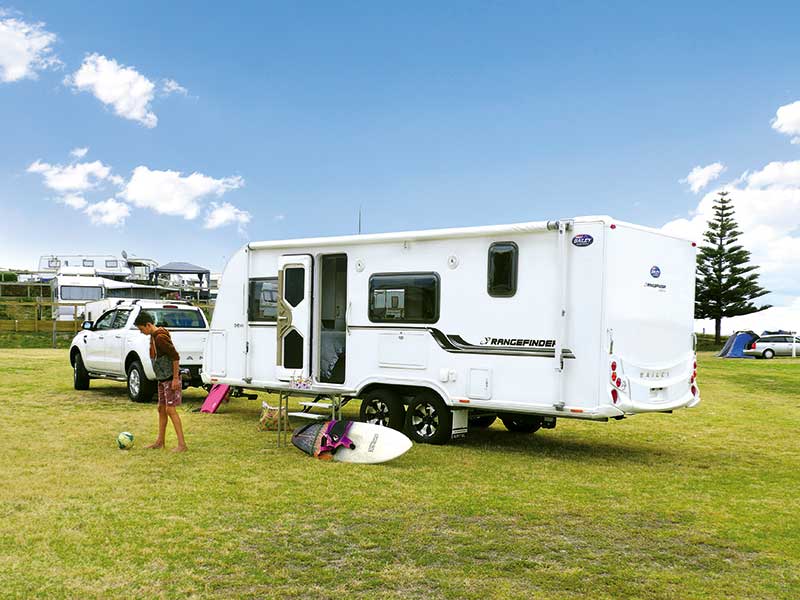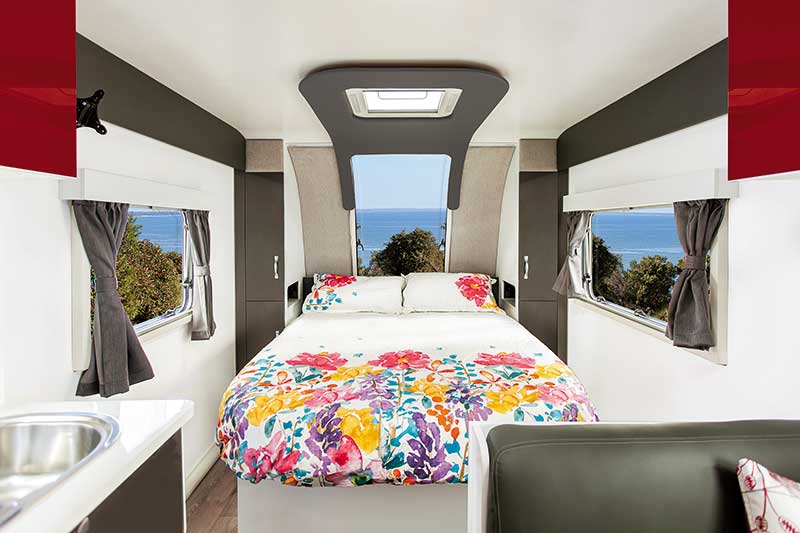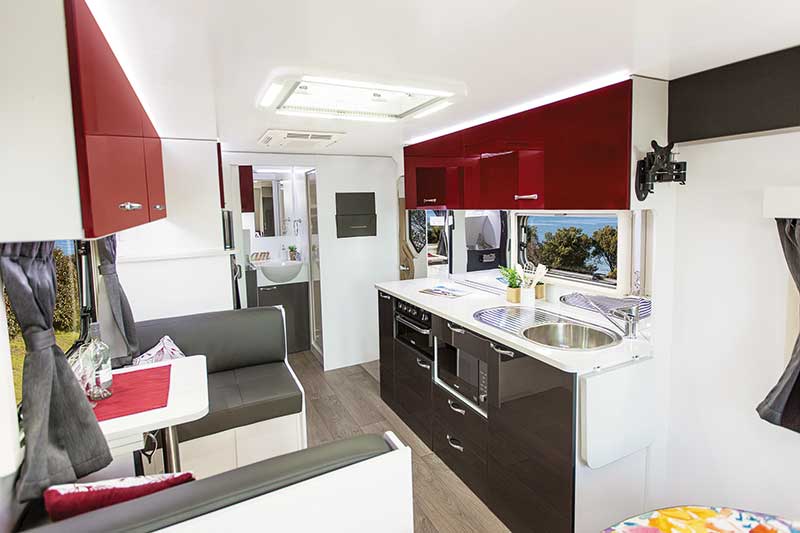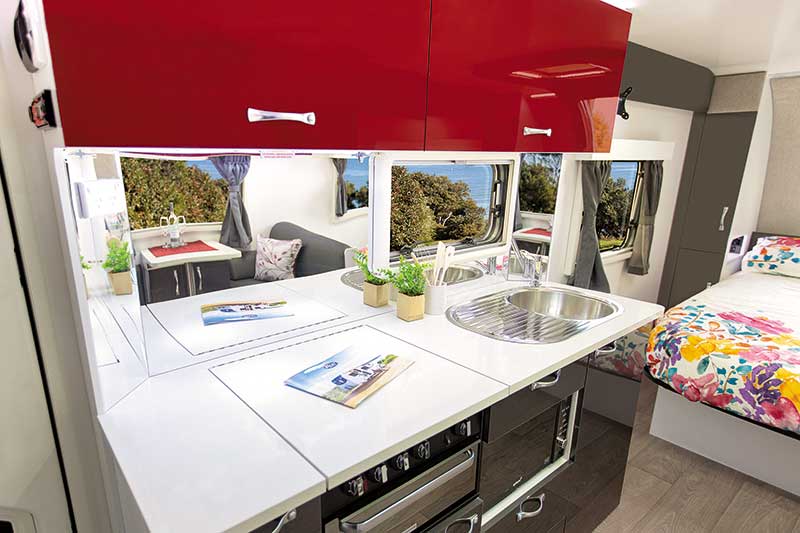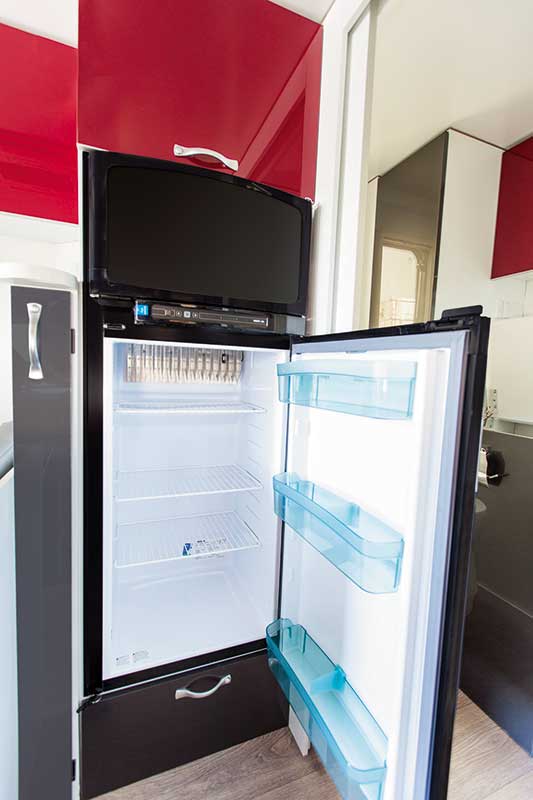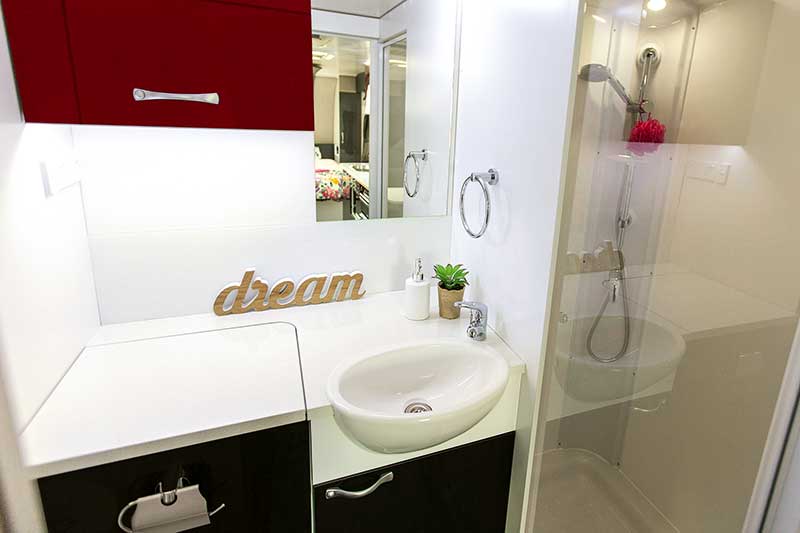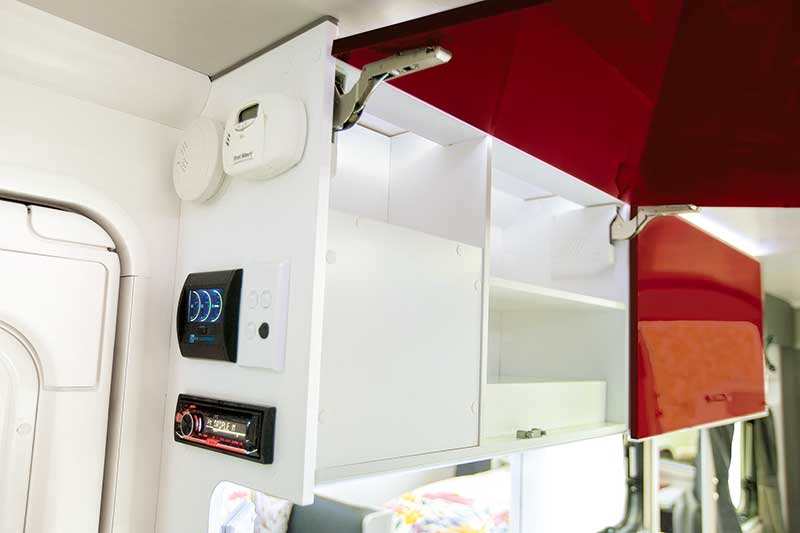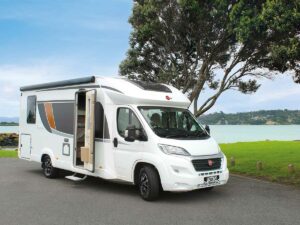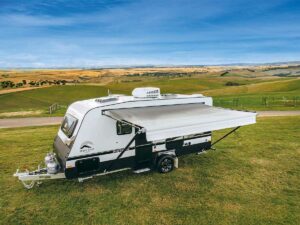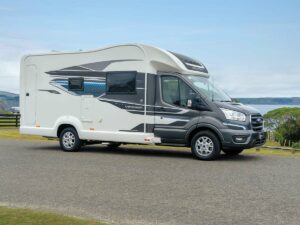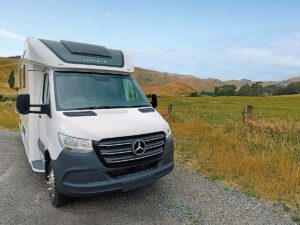Bailey is the first European manufacturer to undertake local caravan production in Australia, bringing the latest construction techniques, processes and cutting-edge design and technology to its travellers. And much thought has gone into understanding the preference of the Australian caravanning public for specific interior layouts. Subsequently, space, usability, comfort and liveability were key considerations.
The Australian Bailey models differ from their UK cousins in that they all have raised chassis, slimline water tanks, awnings and air-conditioning supplied as standard features, not to mention numerous compliance modifications required for the Australian market.
Earlier last year, the Astro’s siblings were destruction tested at the Australian Automotive Research Centre in Anglesea, Victoria, to ensure they could withstand Australia’s toughest conditions. In August 2015, they passed the West2East Challenge – a two-week, trans-Australia trek incorporating more than 8000km of travel, of which 2200km was unsealed and corrugated roads. And in October 2015, all three Rangefinders were officially launched at Melbourne’s Leisurefest.
LAYOUT & DESIGN
I first cast eyes on the 6.15m (20ft 2in) Astro during the judging of the Best Aussie Vans (BAV), and it is certainly typical of the other Rangefinders – built from the inside out, with local CNC-cut furniture securely fixed in place before being bonded and fastened to the caravan’s walls and ceiling panels to create an immensely strong overall body structure. Australian-designed-and-sourced chassis, furniture, windows and doors, kitchen, bathroom and laundry appliances are all chosen for their suitability for local conditions.
A true ‘Aussie’ in its interior layout, the Astro boasts a front island bed, full rear ensuite and central kitchen and lounge, with the choice of a cafe dinette or an L-shaped lounge seating format. Our BAV model came with the former.
The Astro is equipped with many high quality features and fittings including a full tunnel boot, one-piece fibreglass floor protection, under shielding and two 105L (one fresh, one grey) water tanks.
The inside features high-quality fittings and appliances, including domestic quality Blum soft-close cupboard and drawer hinges, recessed LED strip lighting, the latest Thetford gas/electric cooking appliances with a glass-look kitchen splashback, a 185L three-way, two-door fridge, a reverse-cycle air-conditioner and a top-loading 2.5kg washing machine.
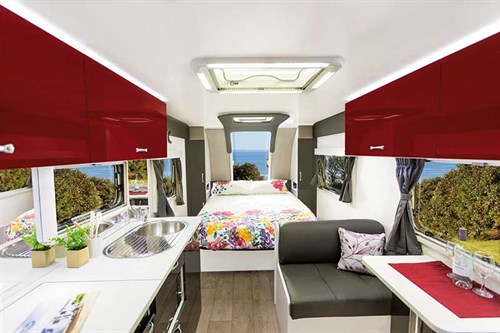
But it was the ground-breaking Alu-Tech body shell construction system that really had me impressed, and it’s this design technology that gives the Astro strength and durability in a lightweight format.
It comprises a five-part panel system which reduces exterior seams, and the panels are built using a timber-free construction, incorporating a composite plastic internal skeleton, high density polystyrene insulation and low maintenance fibreglass inner wall linings. The panels also incorporate low absorbency buffer zones surrounding windows and doors. And the significant reduction in the number of external joints and fixing points enhances the Astro’s resistance to water ingress.
The Astro is typical of the fleet – strong and rigid. It’s also attached to a robotically welded Austrail DuraGal steel chassis. I reckon it could handle a few bumps but would be better suited to the bitumen and the odd dirt track.
It’s badged as a versatile tourer, and that’s fair enough in the respect of its impact resistant fibreglass body panels bonded and bolted to an interlocking aluminium external frame. The one-piece fibreglass floor is thick and its strong overall structure suggests it can handle a bit of dirt.
Optional upgrades can also be made to the Astro, with a ‘Discovery Pack’ featuring Cruisemaster CRS independent coil suspension, DO35 hitch and handbrake and front stone cover. Other extras include luxurious Shann leather upholstery, pillow-top mattress, a full oven, TV, E2400 gas heater, reverse-cycle air conditioner and Dexter DSC anti-sway system just to name a few (NB readers should check the availability of this upgrade in New Zealand with the local importers.)
The verdict
The Astro certainly offers bang for your buck, and should appeal to the budget-conscious buyer.
The curved front window provides a unique ‘space-age’ effect and creates plenty of natural light inside, while the quad-lockable front security door is a sturdy and welcome addition. But the Alu-Tech external framework and the subsequent light weight of the ’van is its real selling point.
If you are after something strong and simple to start touring, the Aussie-built Bailey Rangefinder Astro could be just for you.
Never miss an issue of Motorhomes Caravans & Destinations magazine. Subscribe here.

